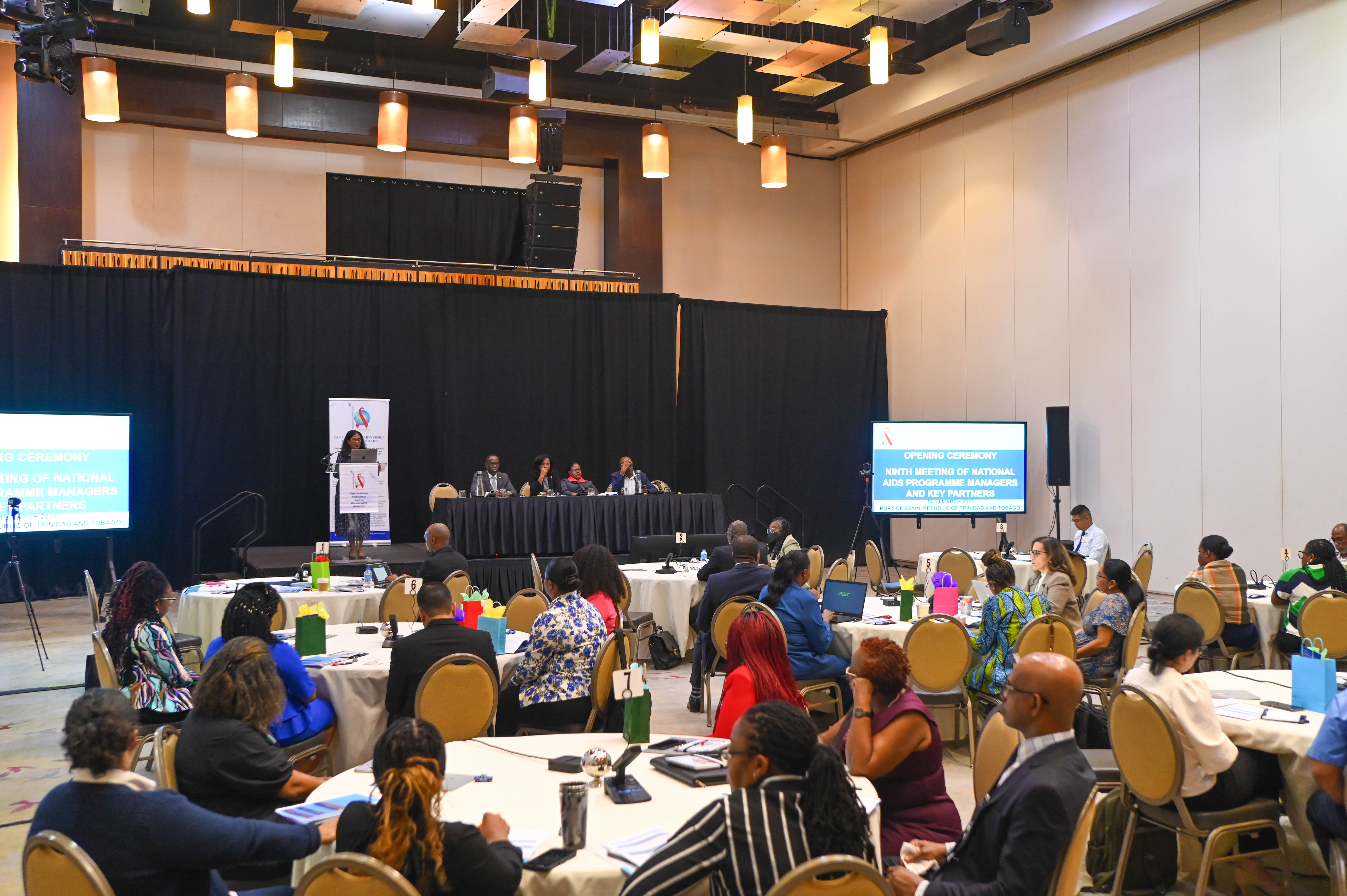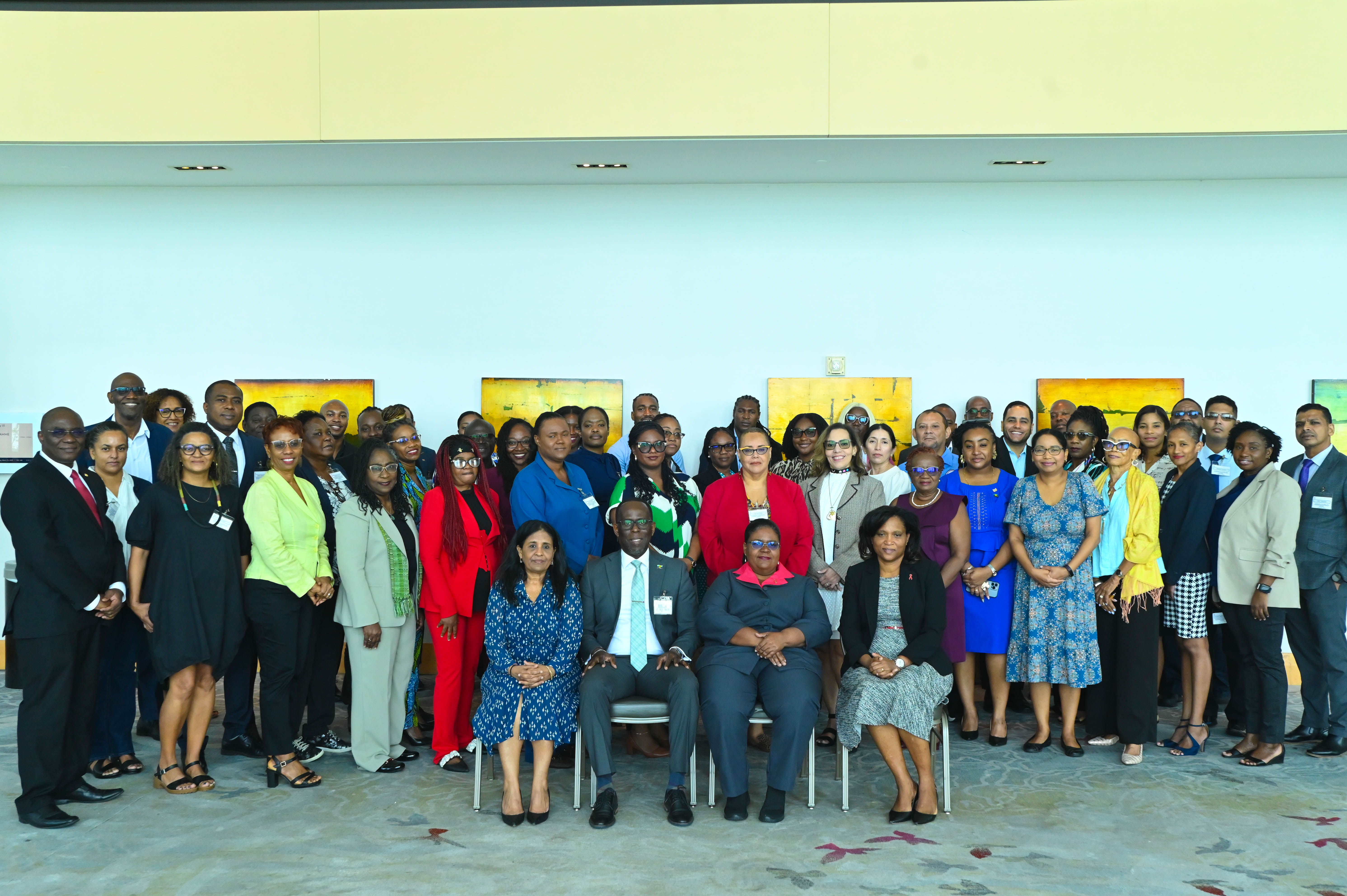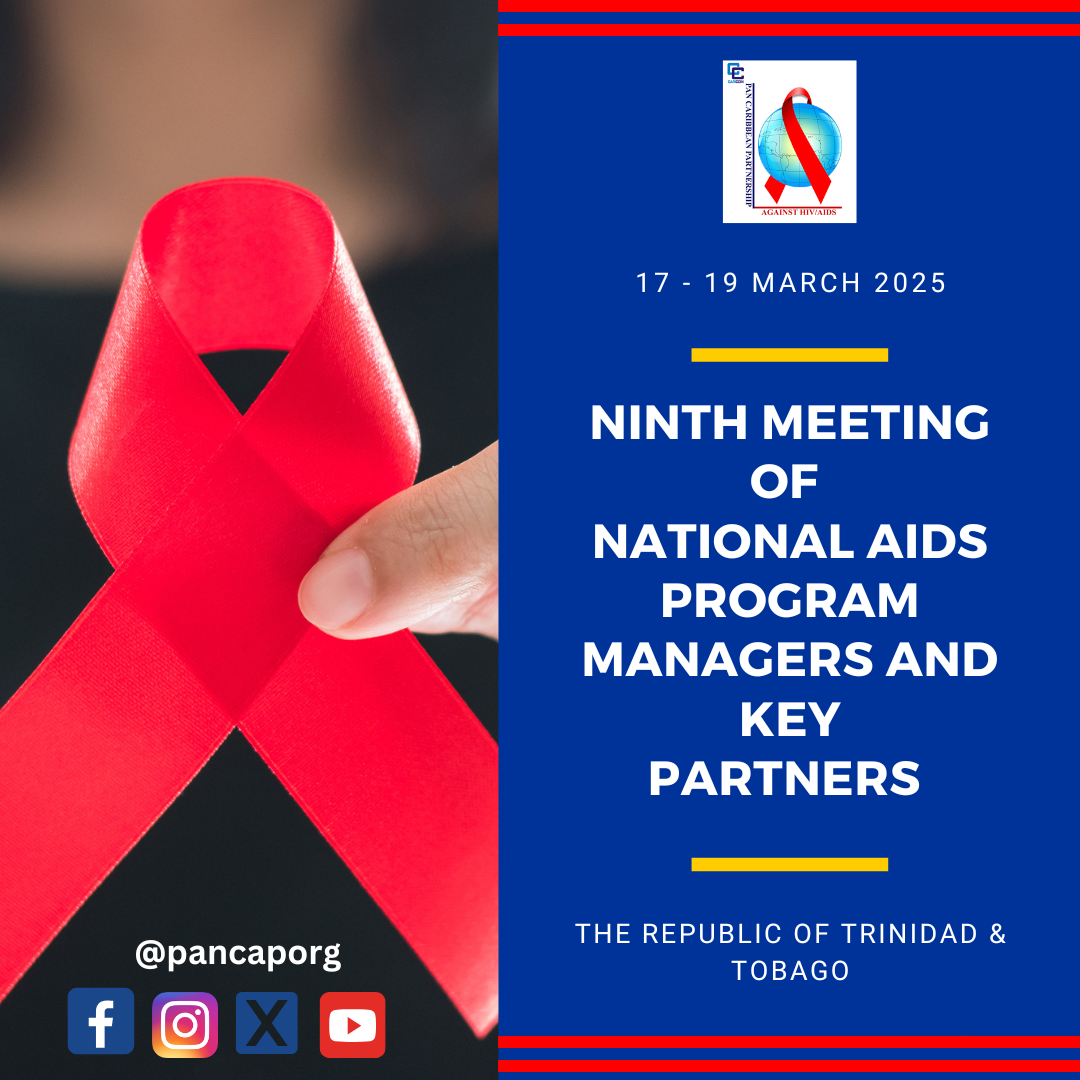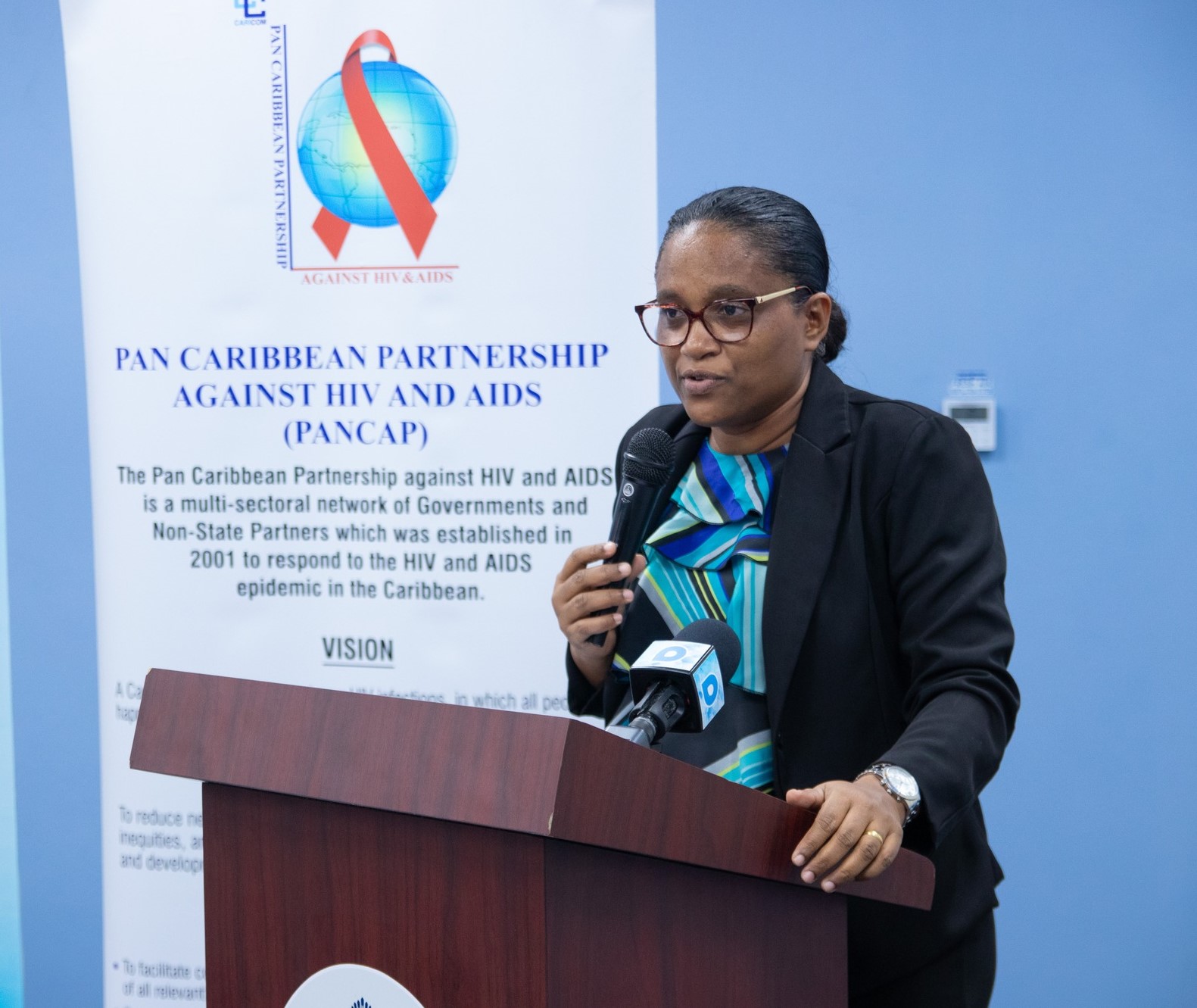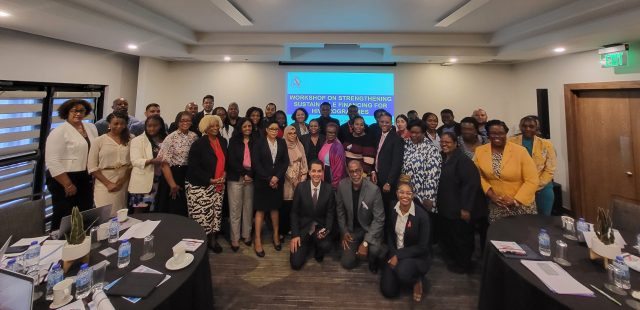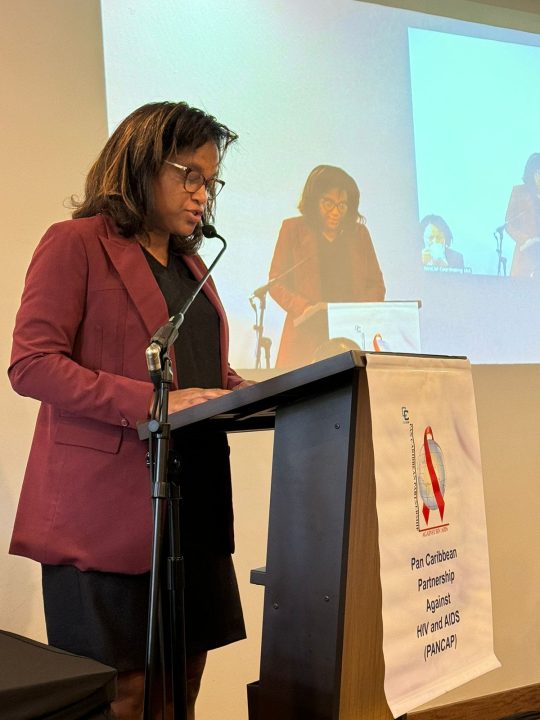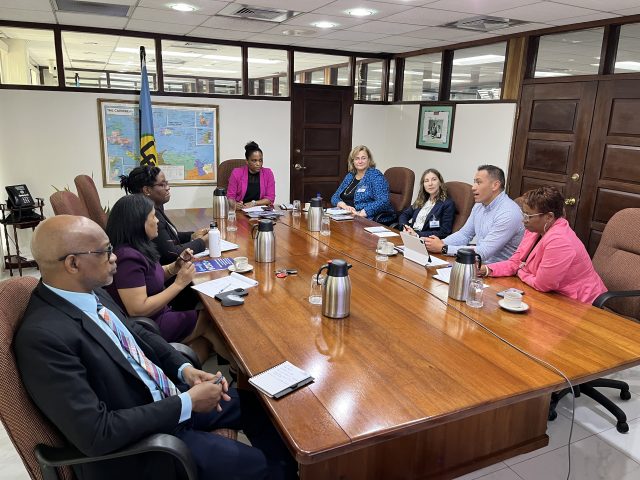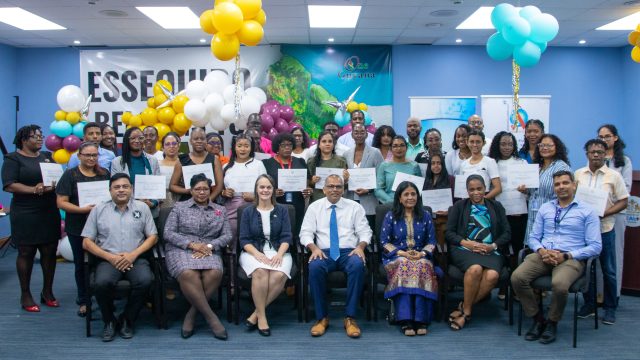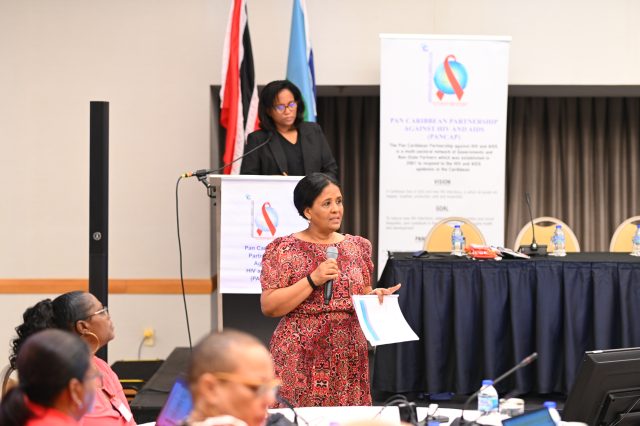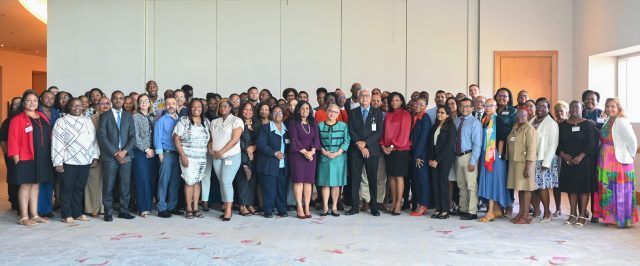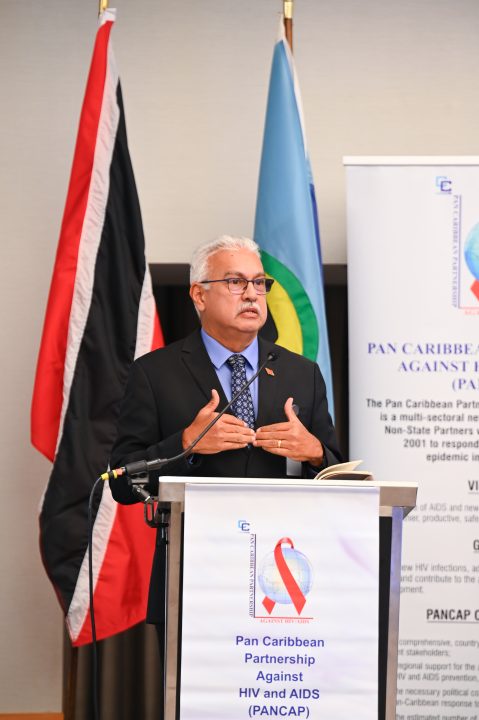Pan Caribbean Partnership against HIV and AIDS (PANCAP), Port-of-Spain, Trinidad and Tobago, 19 March 2025 — The Pan-Caribbean Partnership against HIV and AIDS (PANCAP) successfully convened its Ninth Meeting of National AIDS Programme Managers and Key Partners from across the Caribbean region in Trinidad and Tobago this week.
The high-level gathering brought together policymakers, health experts, civil society leaders, and international development partners to accelerate progress toward ending the HIV epidemic through shared strategies, actionable commitments, and strengthened regional collaboration.
Participants engaged in dynamic discussions on scaling up testing and treatment access, reducing stigma and discrimination, and integrating innovative data-driven approaches into public health strategies. Key outcomes included renewed pledges to mobilize domestic funding, enhance the resilience of the health systems, and prioritize community-led initiatives to reach vulnerable populations.
Key Outcomes and Next Steps
Integration:
A sharp focus was placed on integrating HIV services into the broader regional public health system to enhance service delivery by fostering efficiency, accessibility, and holistic care.
Participants agreed that by embedding HIV testing, treatment, and prevention within routine health services—such as maternal health clinics, primary care, or tuberculosis programmes—health systems will be able to reduce duplication of resources, lower costs, and streamline patient experiences. This approach diminishes stigma, as individuals access HIV care alongside other health needs, encouraging earlier diagnosis and treatment adherence.
Placing adolescent health at the centre of the regional HIV response:
Focus was also placed on integrating adolescent-centred care into the national sexual and reproductive health (SRH) programmes, which is critical to addressing the dual challenges of adolescent health disparities and the HIV epidemic in the Caribbean.
It was noted that adolescents in the region face heightened vulnerabilities due to limited access to youth-friendly SRH services, pervasive stigma, and socio-cultural barriers that deter help-seeking behaviours. With the Caribbean maintaining one of the world’s highest HIV prevalence rates outside sub-Saharan Africa, tailored interventions—such as comprehensive sexuality education, confidential HIV testing, pre-exposure prophylaxis (PrEP), and antiretroviral therapy access—are essential to curb HIV transmission and improve outcomes among adolescents.
Addressing other Sexually Transmitted Infections (STIs):
Participants discussed the urgent need for Caribbean health leaders to place greater emphasis on the growing threat of sexually transmitted infections (STIs) beyond HIV, particularly syphilis, which has seen concerning resurgences in the region.
While strides in HIV prevention are commendable, participants observed that inadequate attention to syphilis and other STIs risks reversing progress, as untreated infections can lead to severe complications, neonatal mortality, and heightened HIV transmission risks. Participants agreed that by crafting inclusive policies or refining current strategies to prioritise these infections, leaders can safeguard vulnerable populations, reduce long-term healthcare burdens, and align with global health equity goals.
The new Caribbean Regional Strategic Framework:
PANCAP is currently engaged in comprehensive consultations to develop the new Caribbean Regional Strategic Framework (CRSF), a pivotal initiative that aims to guide the HIV response through 2030. These consultations bring together governments, civil society organisations, healthcare providers, technical partners, such as the Joint United Nations Programme on HIV/AIDS (UNAIDS), the Pan American Health Organization (PAHO), and donor agencies like The Global Fund, to ensure a collaborative and inclusive approach.
The framework aims to integrate innovative solutions, such as PrEP and community-led interventions, while aligning with global targets, including Sustainable Development Goal 3, to eliminate AIDS as a public health threat.
PANCAP reaffirmed its dedication to sustaining momentum through regular progress reviews and enhanced technical support to member countries. The meeting closed with a collective resolve to prioritise equity, human rights, and multi-sectoral cooperation as pillars of the Caribbean’s HIV response.
PANCAP sincerely thanks the CARICOM Secretariat, The Global Fund, UNAIDS, PAHO, and other partners for their support of the Ninth Meeting of National AIDS Programme Managers and Key Partners.
ENDS

